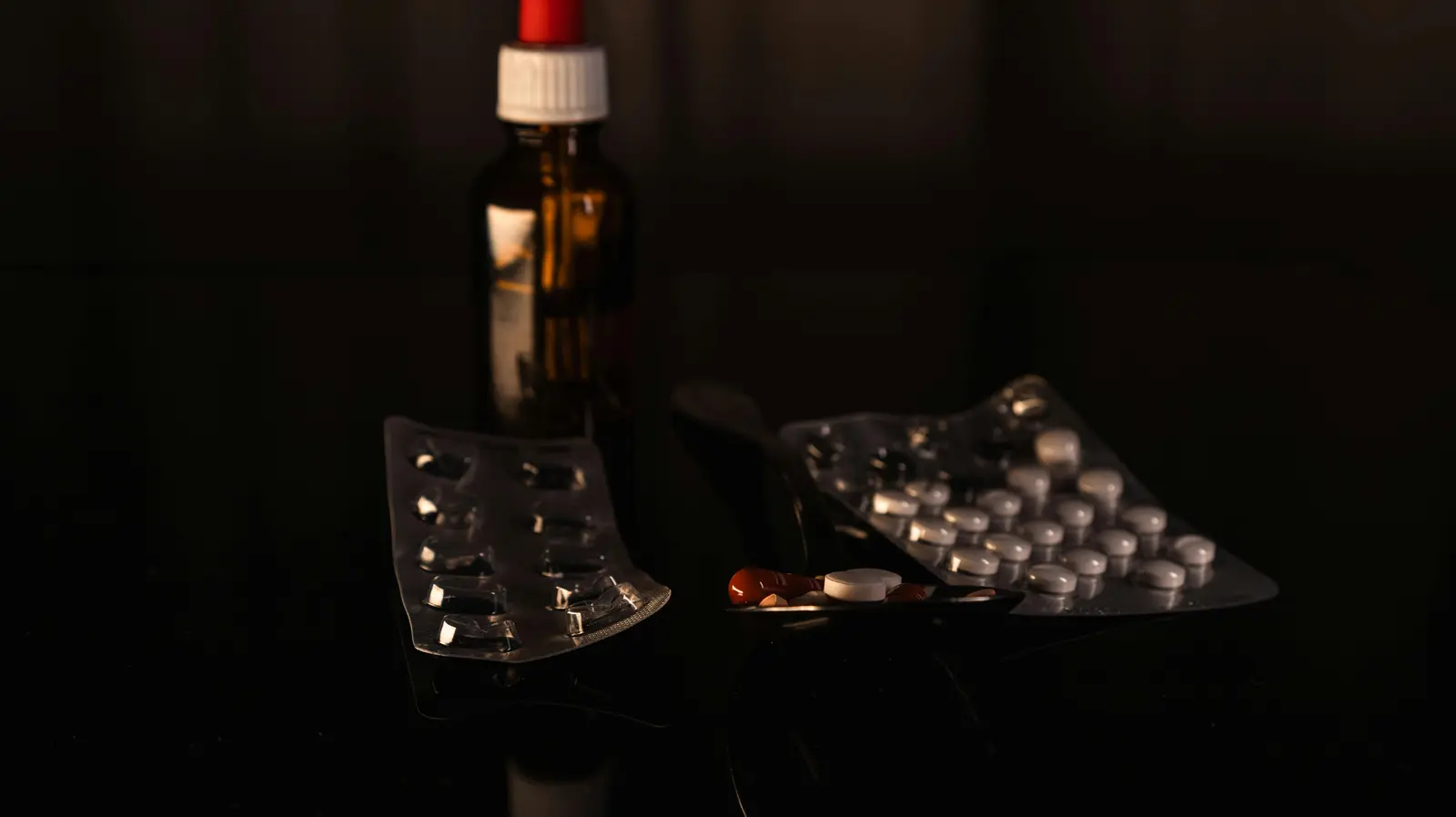Key Points
- Carisoprodol carries the risk of both short-term and long-term side effects, and some of them can be serious or even life-threatening.
- Carisoprodol is a Schedule IV controlled substance, so it also poses the risk of abuse and addiction.
- Avoid Carisoprodol if you have a history of alcohol or drug abuse.
What Is Carisoprodol?
You may know carisoprodol by its brand name, Soma. This prescription medication is FDA-approved as a short-term treatment for muscle pain caused by injuries such as muscle sprains and strains. It is meant to be combined with other treatments, such as physical therapy. It is not intended for long-term use and should be discontinued after three weeks.
Carisoprodol is marketed as a muscle relaxant and works by interacting with the central nervous system. The suggested dose for adults and adolescents over 16 is 250-350 mg three times daily. [1] Carisoprodol is not recommended for teens and children under the age of 16.
It could be important to know that carisoprodol’s primary metabolite is a substance known as meprobamate, which is a barbiturate-like compound with anxiolytic and sedative properties. This is thought to be the reason that the drug carries a risk of physical dependence. Carisoprodol is only available by prescription, and there may be certain risks and side effects to be aware of.
Primary Medication Risks of Carisoprodol
As with any prescription drug, there are risks associated with taking carisoprodol, and some of them are serious. For example, carisoprodol is a controlled substance, and it carries the risk of physical dependence and abuse.[2] The risk of addiction is higher for those with a history of alcohol or substance misuse.
Other dangerous risks linked to the drug include the risk of seizures and overdose.
Taking too much carisoprodol has also been linked to coma and hypotension (also known as low blood pressure).
Signs of Carisoprodol Overdose
Any drug associated with addiction or abuse also carries the risk of overdose. Carisoprodol overdose can be fatal, so it’s crucial to know the signs. If you or a loved one is experiencing the following signs of overdose, call 911 immediately: [4]
- Difficulty breathing, such as slow or shallow breathing
- Vision changes
- Seizures
- Headache
- Hallucinations
- Problems with muscle coordination
- Muscle stiffness
- Twitching
- Enlarged pupils
Avoiding Carisoprodol Overdose
To avoid the chance of overdose, don’t start taking carisoprodol without a prescription. Tell your doctor if you have a personal or family history of substance misuse or addiction. If you are prescribed carisoprodol, only take it as directed. Do not alter the dose before talking to your healthcare provider.
Never give someone else carisoprodol, even for short-term use. Taking someone else’s prescription medication is illegal, and more importantly, it can have serious health risks, including the risk of a fatal overdose.
Serious Drug Interactions
Most prescription medications are associated with some drug interactions. This means you shouldn’t take carisoprodol if you’re taking other medications, such as illicit substances. Taking carisoprodol alongside other drugs is dangerous, especially without a prescription. If you are taking carisoprodol, you must avoid mixing it with any of the following drugs, which can increase the risk of overdose and subsequent death: [5]
- Alcohol
- Benzodiazepines
- Opioids
- Any other illegal or recreational drugs
Always tell your healthcare provider about any other drugs you are taking before they write you a prescription.

Side Effects of Carisoprodol
Carisoprodol has a sedative effect, so sleepiness can be a natural result of taking this drug. While the most common side effect of carisoprodol is drowsiness, there are other adverse effects to be aware of, including some that may be serious or even life-threatening. [6] Seek medical advice from a healthcare provider if you experience any concerning side effects.
Long-Term Side Effects of Carisoprodol
The primary long-term side effects of carisoprodol are the potential for drug abuse, drug addiction, and overdose. The risk is so significant that the drug has no longer been recommended for use in European countries since 2014. [7] These risks are even higher for people with a history of alcohol or substance misuse.
Short-Term Side Effects of Carisoprodol
Aside from the serious risk of addiction and overdose, carisoprodol has been associated with numerous other side effects, including: [8]
- Excessive sleepiness
- Painful urination or problems urinating
- Sore throat
- Chest pain
- Swollen glands
- Chills and cold sweats
- Increased heart rate
- Fever
- Unexplained bleeding or bruising
- Breathing problems
- Weakness and fatigue
- Sudden loss of consciousness
- Muscle spasms
- Convulsions or seizures
- Dizziness
- Confusion
- Dark-colored stools
- Incontinence
If these side effects are bothersome or persist after a few days, consulting with healthcare professionals about using carisoprodol may be necessary.
Avoiding & Managing Carisoprodol Side Effects
Nearly all medications have side effects, but those associated with carisoprodol can be serious. Here are some general tips for avoiding and managing the potentially dangerous side effects of carisoprodol:
- Tell your doctor about any history of drug abuse or addiction.
- Disclose any other medications you’re on to your healthcare provider, including any over-the-counter medications, herbal supplements, or recreational drugs you are currently taking or have taken in the past.
- Only take carisoprodol as prescribed by a doctor. Do not take more of the medication than indicated on your prescription. Higher doses may be associated with more severe side effects. If carisoprodol isn’t working, contact your healthcare provider to discuss alternatives.
- Avoid alcohol while taking Soma or carisoprodol since alcohol can make side effects worse and increase the risk of overdose.
- Tell your doctor immediately if you’re experiencing side effects, especially serious ones or those that persist after a few days.
Who Should Avoid Carisoprodol?
Carisoprodol isn’t safe for everyone, even for short-term use. If you have a history of drug abuse or addiction, ask your doctor about alternatives to carisoprodol for musculoskeletal pain.
Other people who may need to avoid carisoprodol, or Soma, include: [9]
- People with a history of substance misuse (including alcohol)
- People with a family history of alcohol or drug abuse
- People under the age of 16
- People over the age of 65
- People who are allergic to meprobamate
- People who regularly take St. John’s wort, aspirin, or Prilosec
- People with a history of the blood disease porphyria
- People with a history of seizures
- People with a history of kidney or liver disease
- People who are pregnant or breastfeeding
Should I Take Carisoprodol?
Carisoprodol should only be taken under the guidance of a healthcare professional. Even then, it is only indicated for short-term use. Do not take carisoprodol or any other medication without a prescription. If you have a history of alcohol or drug misuse, avoid carisoprodol altogether. If you are experiencing muscle pain or injury, ask your healthcare provider about safer alternatives.




